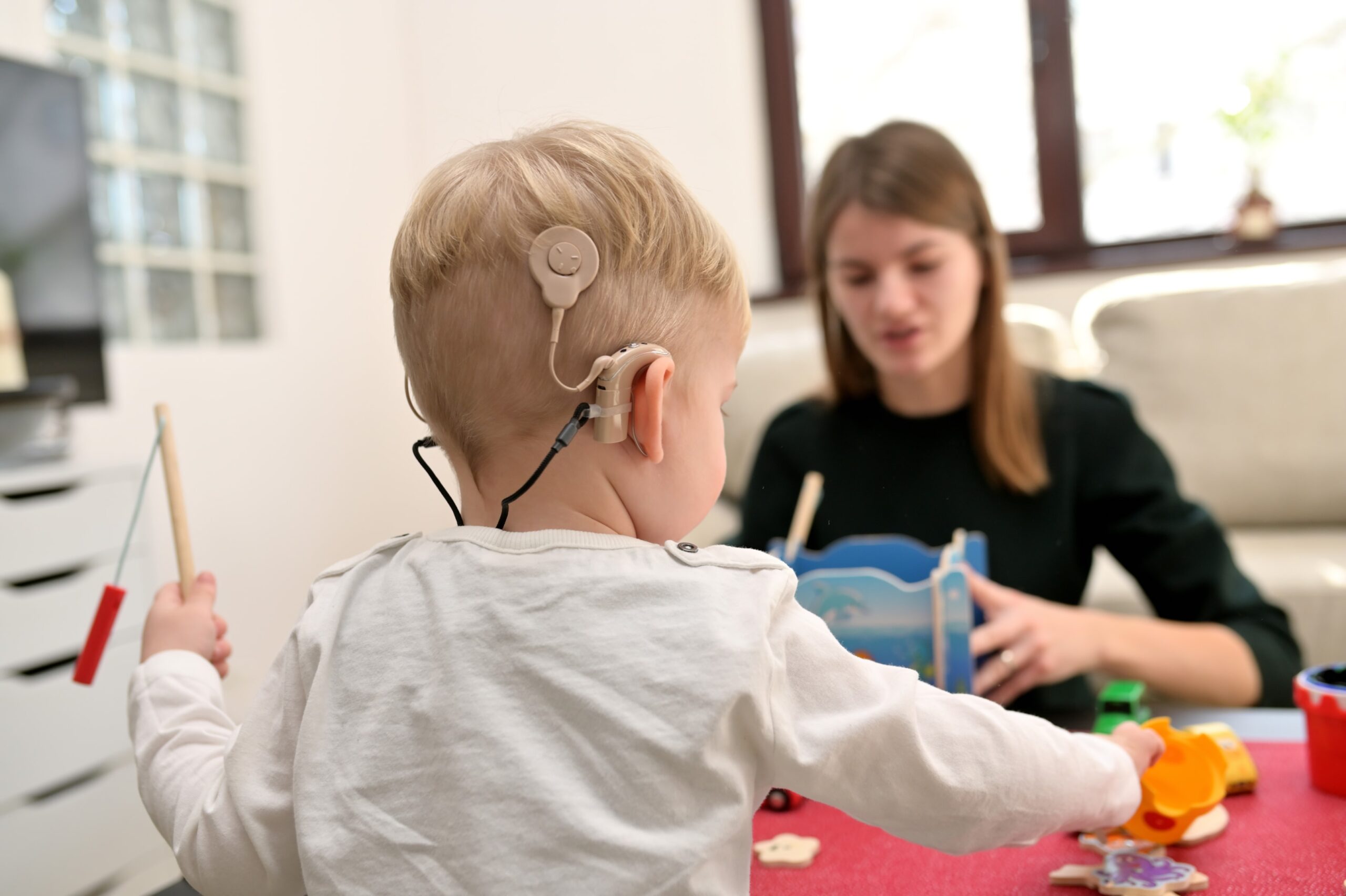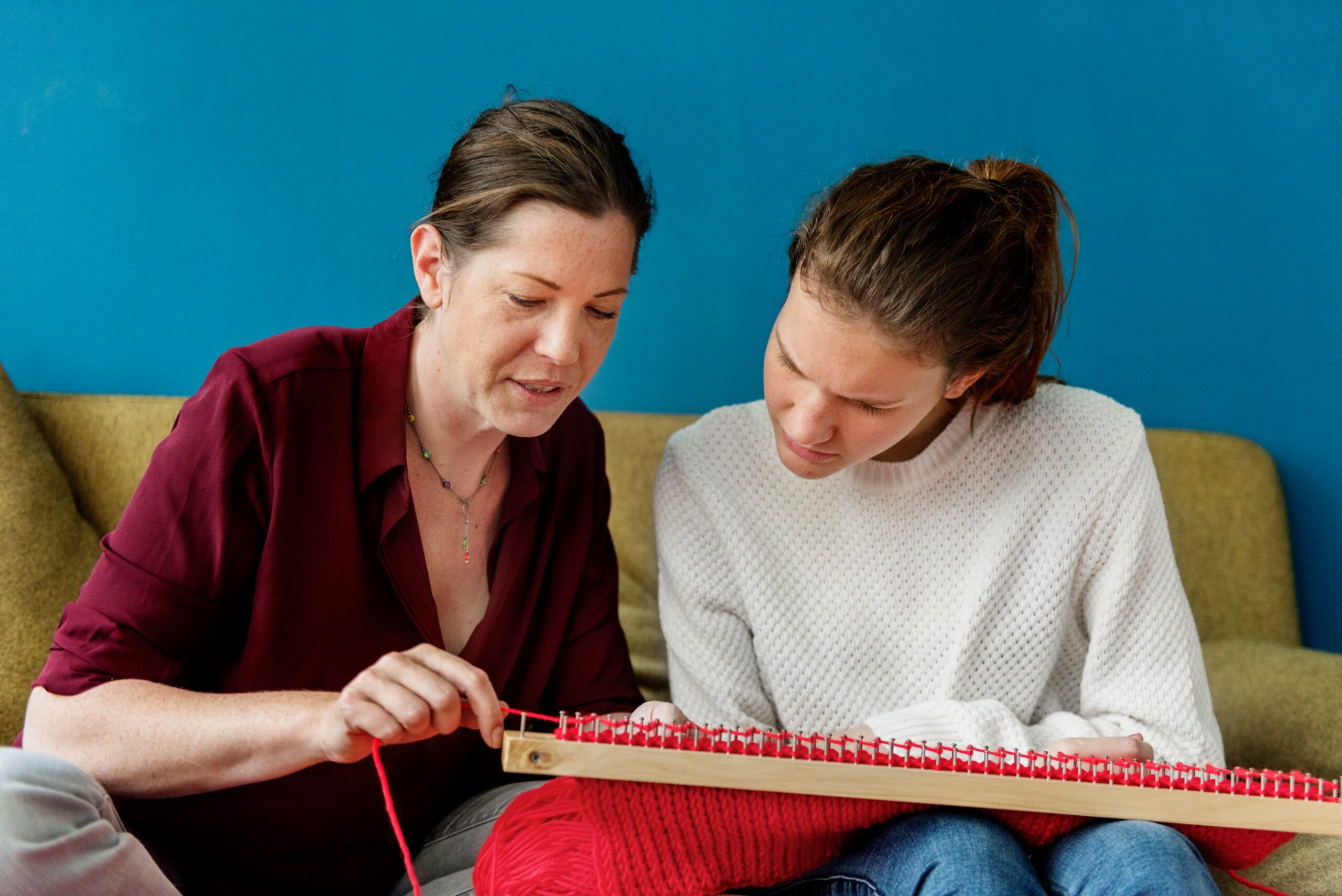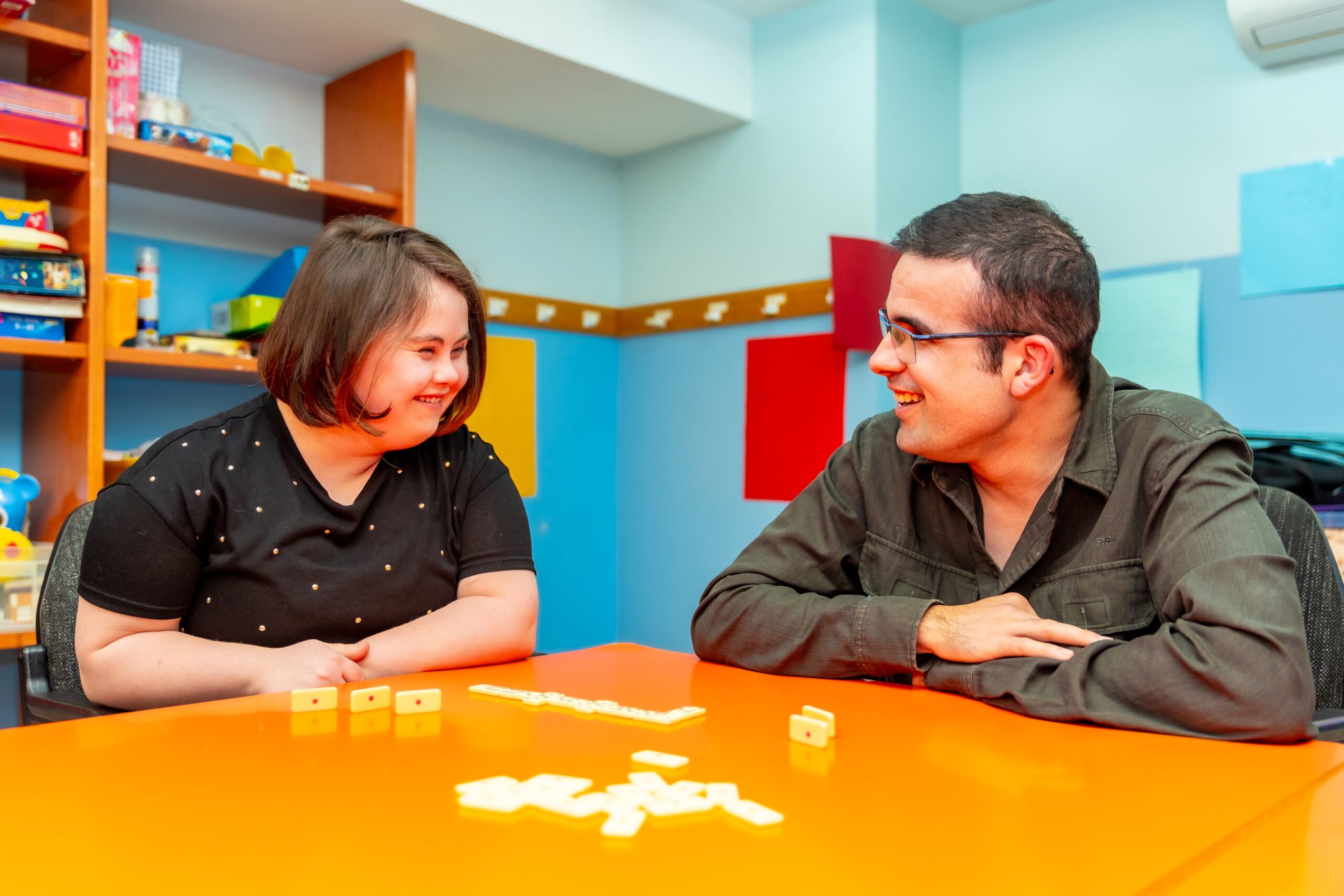Living with ADHD can make even the simplest routines feel overwhelming. Getting dressed, staying on task, managing emotions, and keeping track of time can quickly become daily challenges for children and adults.
Occupational Therapy (OT) offers a structured, supportive approach that helps people with ADHD build real-life skills, manage their environment, and regain confidence in their daily routines. Additionally, OT can support individuals facing challenges due to mental illness, alongside ADHD.
At Bloom Healthcare, we understand that ADHD looks different for everyone. Our Occupational Therapists work closely with individuals and families to deliver tailored, evidence-based strategies that meet people where they are, without judgment or pressure.
What Is ADHD, and How Do ADHD Symptoms Impact Everyday Life?
ADHD—Attention Deficit Hyperactivity Disorder—is a neurodevelopmental condition that affects attention, organisation, impulse control, and emotional regulation.
It’s not just about being “distracted” or “hyper.” ADHD can show up in subtle and significant ways, like:
- Taking hours to complete basic routines
- Forgetting steps in tasks or losing belongings constantly
- Feeling overwhelmed by noise, clutter, or transitions
- Emotional outbursts that feel sudden and hard to explain
- Difficulty managing time—what’s often called “time blindness”

ADHD occurs more frequently in boys than girls.
At Bloom Healthcare, we see how these challenges impact productivity, self-esteem, mental health, and family life. Occupational Therapy steps in to build practical systems and confidence, not conformity. Other mental disorders often accompany ADHD.
Symptoms of ADHD
Attention Deficit Hyperactivity Disorder (ADHD) is a neurodevelopmental disorder characterised by a range of symptoms that can vary widely from person to person. Common symptoms include difficulty paying attention, being easily distracted, making careless mistakes, and following instructions. These inattentive symptoms can make it challenging to stay focused on tasks, leading to frustration and a sense of being overwhelmed.
In addition to inattention, individuals with ADHD may exhibit hyperactive and impulsive behaviours. This can include fidgeting, restlessness, and interrupting others during conversations. These behaviours can be particularly noticeable in settings that require sustained attention and self-control, such as classrooms or workplaces.
According to the Diagnostic and Statistical Manual (DSM-5), a diagnosis of ADHD requires the presence of at least five symptoms of inattention and/or hyperactivity-impulsivity. Understanding these symptoms is crucial for recognising and addressing the unique challenges faced by individuals with ADHD.
Daily Life Challenges
Living with ADHD can significantly impact various aspects of daily life, from personal relationships to work or school performance. Individuals with ADHD often struggle with managing time, completing tasks, and maintaining organisation. These challenges can make everyday activities feel overwhelming and unmanageable.
Self-care tasks, such as maintaining a healthy diet, exercising regularly, and getting enough sleep, can also be complex for those with ADHD. The constant battle to stay on top of these essential routines can lead to increased stress and a sense of failure.
Moreover, ADHD can increase the risk of developing other mental health conditions, such as anxiety disorders, mood disorders, and substance abuse. These co-occurring conditions can further complicate daily life and make it even more challenging to manage ADHD symptoms effectively.
How Can Occupational Therapy Practice Help People with ADHD?

Occupational Therapists focus on improving a person’s ability to engage in daily tasks at home, school, work, or the community. A qualified Occupational Therapist can help someone with ADHD by turning chaos into clarity using structure, routine, and strengths-based support.
Engaging in meaningful activities is crucial for individuals’ health and quality of life, and Occupational Therapists play a key role in facilitating participation in these activities.
Here’s what this looks like in real life:
Role of an Occupational Therapist
Occupational Therapists play a crucial role in helping individuals with ADHD develop strategies and skills to manage their symptoms and improve their daily functioning. Occupational Therapy practice focuses on enabling individuals to participate in occupations that are meaningful to them, such as work, leisure activities, and self-care tasks.
At Bloom Healthcare, our Occupational Therapists work closely with individuals with ADHD to identify their strengths and challenges. We develop personalised plans to enhance their occupational engagement and performance. This might involve creating visual schedules, setting up reminder systems, or teaching time management techniques.
In Australia, Occupational Therapy is a vital part of the healthcare system, with Occupational Therapists working in various settings, including community health, hospitals, and private practice. Our goal is to provide support tailored to each individual’s needs, helping them lead a more organised and fulfilling life.
Executive Function Support
Many people with ADHD find it hard to get started, stay organised, or follow through on tasks—even when they want to. At Bloom Healthcare, our OTs work on building routines and scaffolding tasks in ways that feel manageable. School-aged children with ADHD often face challenges in the classroom, such as completing school assignments, due to symptoms like forgetfulness and impulsivity.
For example, we might:
- Break a morning routine into visual steps using images and checklists
- Help set up systems for packing a school bag or submitting school assignments
- Introduce timers, calendars, and rewards to keep momentum going
These aren’t one-size-fits-all solutions—they’re adapted to each person’s age, goals, and environment.

Emotional Regulation, Mental Health, and Sensory Support
ADHD often coexists with emotional sensitivity and sensory overwhelm. This can lead to meltdowns, anxiety, or withdrawal.
ADHD can also lead to relationship difficulties, as individuals with this condition often face challenges in social skills and interactions.
Our OTs at Bloom help clients develop self-awareness and calming strategies. For a child, this might mean creating a sensory toolkit with noise-cancelling headphones, chewy jewellery, or fidget options. For a teenager or adult, it could involve learning how to use movement, deep breathing, or breaks to regulate overwhelm before it escalates.
We also work with families and carers to make home and school environments more supportive, not more restrictive.
Improving Organisation and Daily Living Skills
A lot of people with ADHD are labelled as “messy” or “disorganised”—when in reality, they’re trying their best with systems that just don’t work for their brains. Many individuals with ADHD also have learning disabilities, which can further complicate their ability to stay organised and focused.
OT can make a massive difference here. Bloom Therapists often help with:
- Developing colour-coded or visual systems for homework, chores, and schedules
- Setting up reminder tools (phones, whiteboards, checklists) that are easy to use
- Teaching strategies for managing time and planning ahead
- Building routines for hygiene, meals, medication, or independent living
Students with ADHD may qualify for special education services, which emphasise the importance of assessing their learning needs and providing tailored support.
We’ve worked with clients to create everything from after-school task stations to adult-friendly morning routines that finally stick.

Working with Families, Teachers, and Allied Health Teams
One of the most powerful parts of OT is that it doesn’t happen in isolation. At Bloom Healthcare, we work closely with:
- Parents and carers need to create consistency at home
- Teachers and school staff should make classrooms ADHD-friendly
- Other professionals, like Psychologists and Speech Pathologists, should ensure joined-up care
Considering family history is crucial in the ADHD diagnosis process, as it can provide valuable insights into genetic predispositions.
For example, a child might work with a Bloom OT on managing transitions between classroom activities, while their psychologist helps with anxiety, and their PBS practitioner supports behaviour regulation. That kind of collaborative, whole-person care makes our approach different and effective.
Environmental factors also play a significant role in the development of ADHD, with exposure to toxins during pregnancy and early childhood potentially disrupting brain development and amplifying symptoms.
Psychological Treatments
Psychological treatments, such as Cognitive-Behavioural Therapy (CBT) and Behavioural Therapy, are effective in managing ADHD symptoms. These treatments focus on helping individuals with ADHD develop skills and strategies to manage their symptoms, improve their relationships, and enhance their overall well-being.
CBT, for example, helps individuals identify and change negative thought patterns and behaviours that contribute to their ADHD symptoms. Behavioural Therapy focuses on reinforcing positive behaviours and reducing problematic ones. These treatments can be used with medication and tailored to meet the individual’s specific needs and goals.
In addition to CBT and Behavioural Therapy, other psychological treatments, such as mindfulness-based and Family Therapy, may be beneficial. These approaches can help individuals with ADHD develop greater self-awareness, improve their emotional regulation, and build stronger support networks.
How OT Changes Across Life Stages
Children and Early Intervention
For younger children, OT focuses on sensory needs, motor skills, self-care routines, and classroom participation. We often work with families to build structure into the day and reduce daily stress. Early support here can prevent frustration from snowballing later on. Premature birth can increase the risk of developing ADHD.
In addition to these factors, understanding the role of the central nervous system in ADHD symptoms is crucial.
Teenagers
Teen years are tough for many people with ADHD. Academic pressure, changing social dynamics, and rising expectations can lead to overwhelm. Teenagers with ADHD may also have conduct disorder. Our OTs support teenagers to develop independence with study skills, emotional regulation, self-advocacy, and executive function.
Additionally, there is a significant comorbidity with oppositional defiant disorder (ODD).
Adults
ADHD in adults is often misunderstood. Many haven’t been diagnosed until later in life and feel behind or burnt out. Adults with ADHD often face challenges in forming and maintaining interpersonal relationships, which can impact their self-esteem and social function. We help adults develop systems for work, finances, appointments, and home life. It’s never too late to find strategies that work for you, not just for now, but for life.
Occupational Therapy aims to help individuals achieve their goals and enhance their quality of life. Through various therapeutic practices, we support adults in leading a meaningful life.

Lifestyle Changes and Self-Advocacy
Making lifestyle changes and practising self-advocacy can significantly help individuals with ADHD manage their symptoms and improve their overall well-being. Simple changes, such as maintaining a healthy diet, exercising regularly, and getting enough sleep, can have a profound impact on ADHD symptoms.
Self-advocacy involves actively managing one’s symptoms, seeking support, and advocating for one’s needs. This can include educating others about ADHD, seeking accommodations in the workplace or school, and developing a support network of family, friends, and mental health professionals.
By making these lifestyle changes and practising self-advocacy, individuals with ADHD can take control of their condition and lead more balanced and fulfilling lives.
Enhancing Independence
Enhancing independence is a key goal of Occupational Therapy practice for individuals with ADHD. Occupational Therapists work with individuals to develop skills and strategies to manage their daily life challenges and enhance their independence in areas such as self-care, work, and leisure activities.
At Bloom Healthcare, we focus on helping individuals with ADHD build routines and systems that work for them. This might involve creating visual schedules, setting up reminder systems, or teaching time management techniques. By developing these skills and strategies, individuals with ADHD can improve their overall well-being and enhance their participation in meaningful occupations.
Additionally, we educate and support family members and caregivers, helping them understand and support their loved one with ADHD. This collaborative approach ensures that individuals with ADHD have the support they need to thrive.
ADHD and the NDIS: What Support Is Available?
Occupational Therapy is often funded under Improved Daily Living in an NDIS plan. At Bloom Healthcare, we support clients and their support coordinators in integrating OT into their goals—whether that’s participating in education, developing independence, or building emotional regulation. A medical evaluation is crucial in diagnosing ADHD, as it helps rule out other medical conditions and ensures a comprehensive understanding of the individual’s needs.
We also offer assessment reports, progress updates, and collaboration with other NDIS-funded providers on a client’s team. Whether OT is your primary support or one part of a broader plan, we ensure it fits and flows. Occupational Therapy can be particularly beneficial for individuals with psychiatric disorders, providing strategies to manage symptoms and improve quality of life.
Want to explore our ADHD-friendly OT services? https://bloom-healthcare.com.au/services/occupational-therapy
How Do You Know If OT Is Right for You or Your Child?
If you’re noticing any of the following, it may be time to consider Occupational Therapy:
- Struggles to stick to routines or complete tasks independently
- Avoids transitions or new environments
- Reacts strongly to noise, textures, or unexpected changes
- It is disorganised despite trying hard
- Shows signs of low self-esteem or frustration with everyday life
- Seems capable but isn’t meeting expectations at school, work, or home
Attention deficit disorder was the previous terminology for ADHD.
You don’t need to have a crisis to start OT. Sometimes, small challenges repeated daily are the most exhausting—and the most fixable with the proper support.
It is also important to rule out other medical conditions, such as thyroid issues or brain injuries, which could potentially affect the diagnosis and management of ADHD.
At Bloom, We Support More Than Symptoms—We Support People
ADHD is not a flaw or a failure. It’s a different way of thinking, experiencing, and responding to the world. At Bloom Healthcare, we offer Occupational Therapy that embraces neurodiversity, respects individual preferences, and focuses on practical outcomes. Our Occupational Therapists identify and address environmental barriers to help clients engage in meaningful activities.
Our OTs don’t just give people strategies—they walk alongside them as they build habits, navigate challenges, and develop their strengths.
Whether you’re a parent looking for early intervention, a teen seeking independence, or an adult finally getting the right diagnosis, OT can be the step that turns things around.




